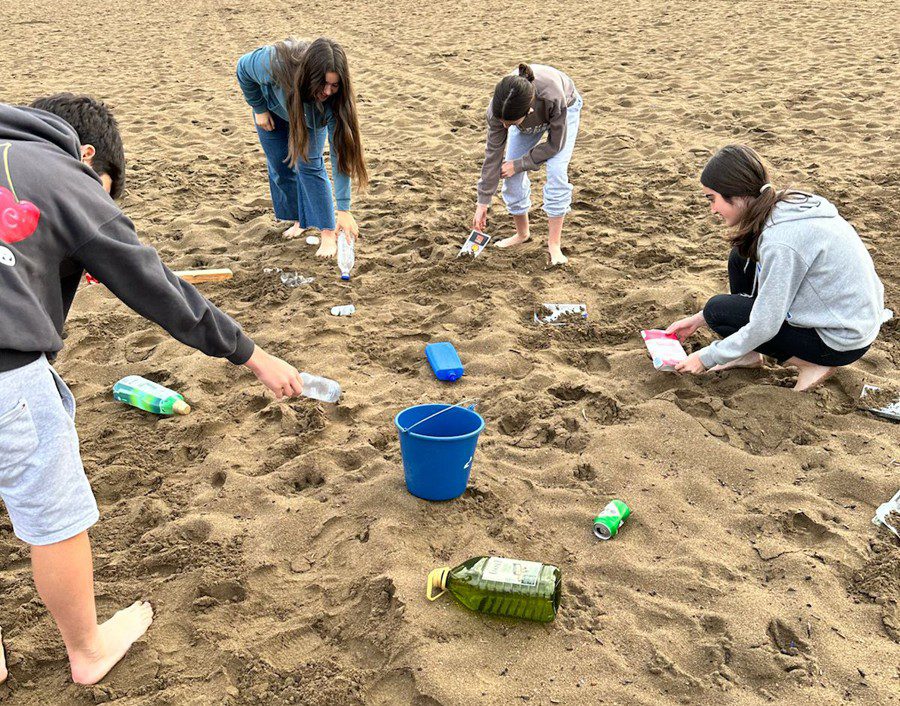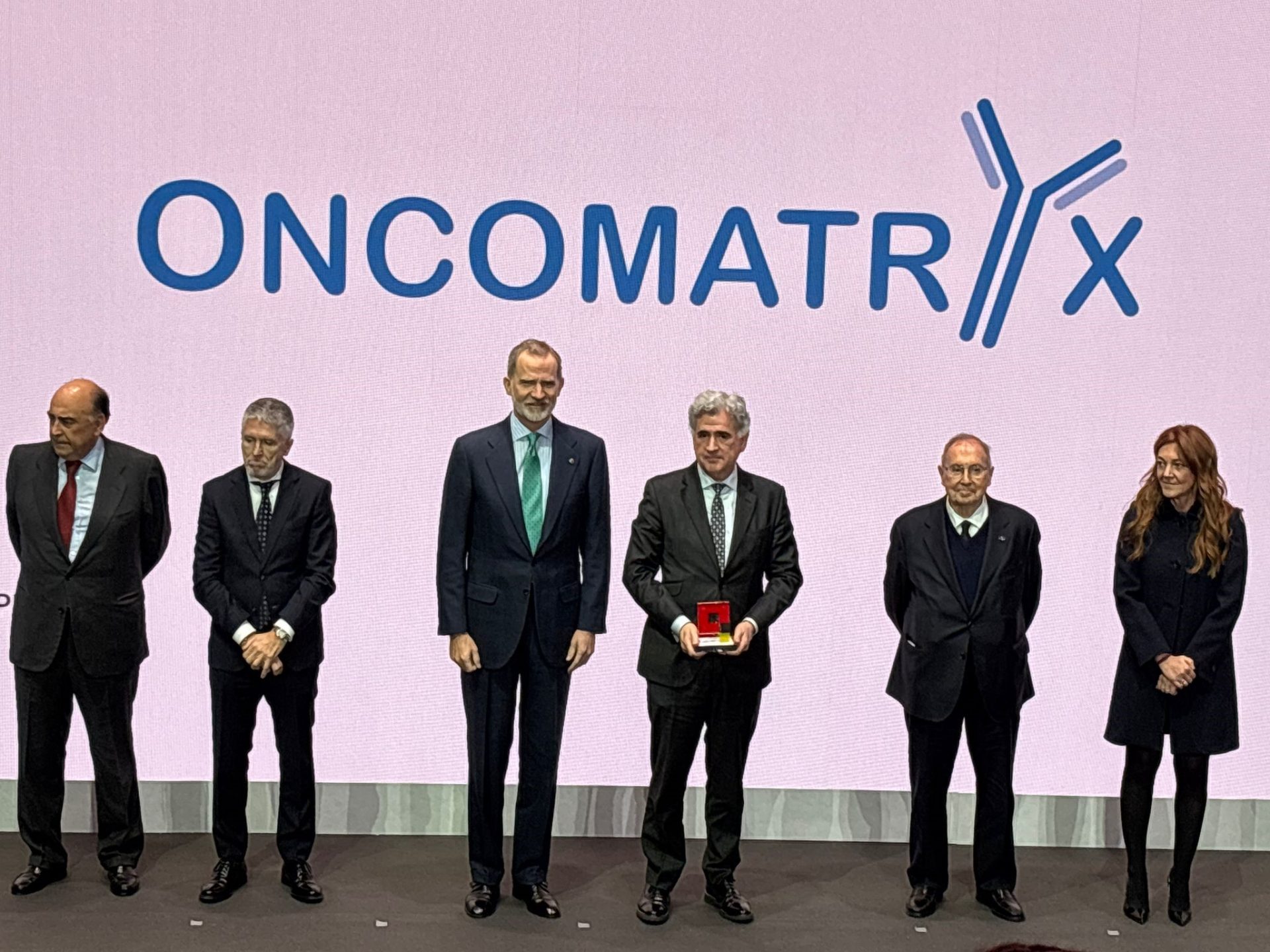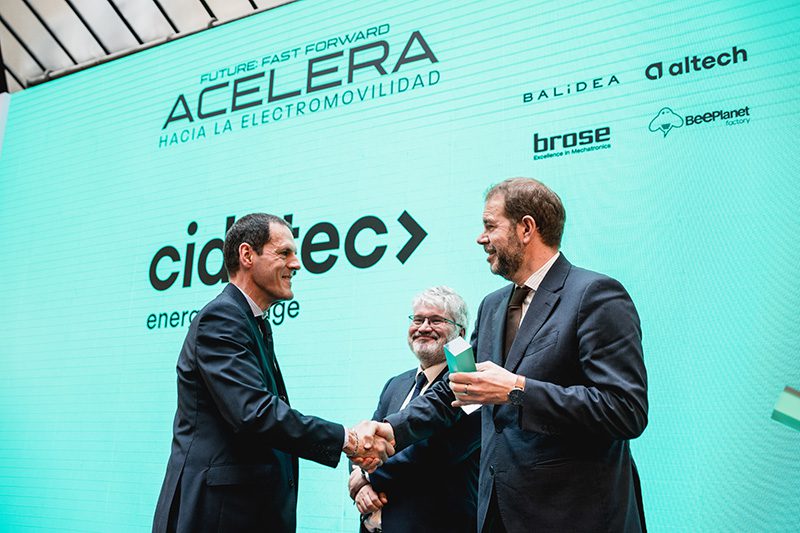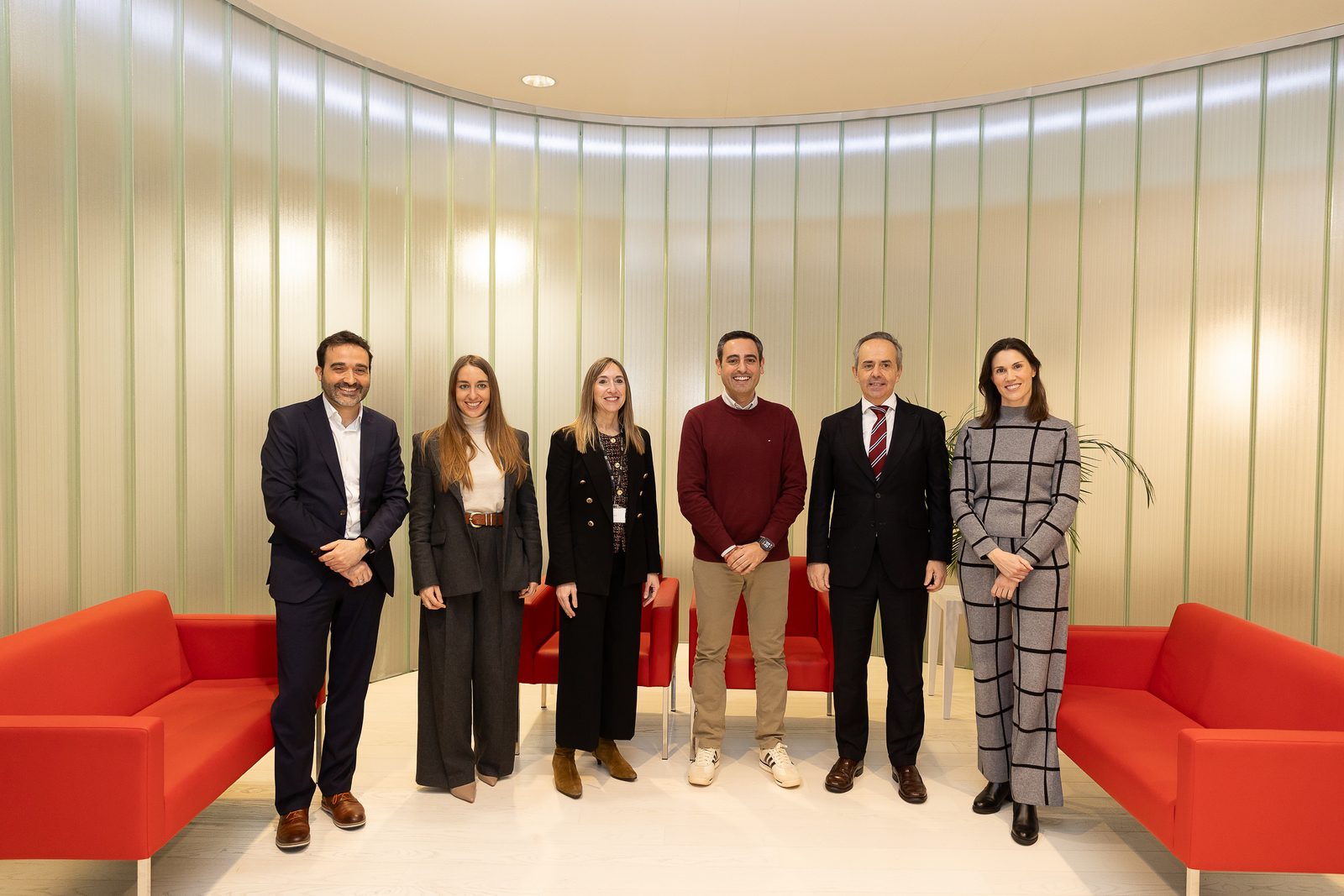The present and future of artificial intelligence will be the focus of the 13th edition of the Global Innovation Day
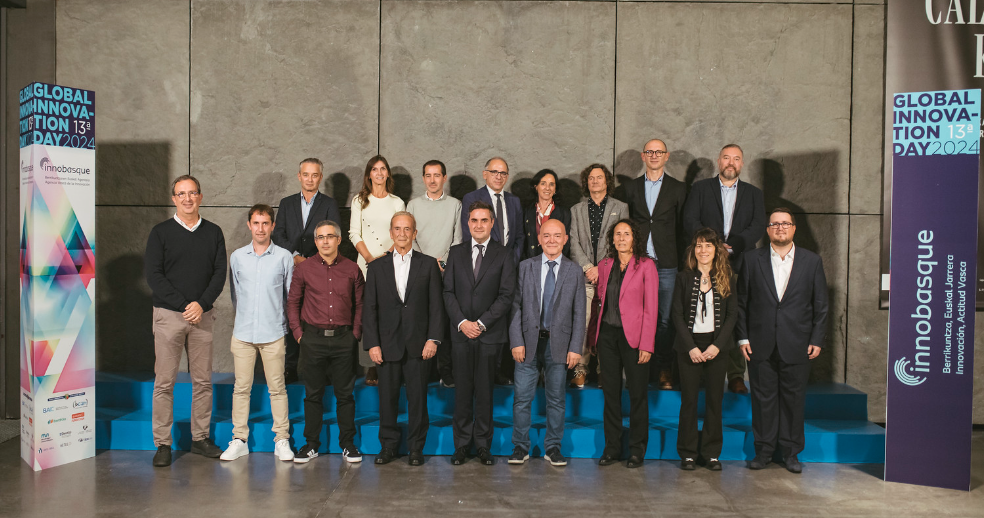
The great innovation event in the Basque Country featured experts in artificial intelligence and generative artificial intelligence and 6 case studies undertaken by Basque organisations that showed the important advances of this disruptive technology in the Basque Country.
The ‘Global Innovation Day Dialogue’ between Ikerbasque research professors Nicola Molinaro and Román Orús showed the importance of language models and the multiple avenues of collaboration between disciplines that artificial intelligence has opened up.
The main event was opened by the Minister of Industry, Energy Transition and Sustainability of the Basque Government, Mikel Jauregi, and by the President of the Basque Innovation Agency, Innobasque Manuel Salaverria, and closed by the Minister of Science, Universities and Innovation of the Basque Government, Juan Ignacio Pérez Iglesias, and the Director General of the Basque Innovation Agency, Innobasque, Leire Bilbao.
Through the following link you can access the images of the day: https://flic.kr/s/aHBqjBQ5Nt
The 13th edition of the Global Innovation Day, the annual event organised by the Basque Innovation Agency, Innobasque, has established itself as a benchmark in the dissemination of cutting-edge innovation in the Basque Country. The celebration of the great Basque event kicked off the 24th Science, Technology and Innovation Week.
In this edition, the Global Innovation Day, in collaboration with the Basque Artificial Intelligence Centre, BAIC, and the Basque Centre for Research in Applied Mathematics, BCAM, has focused its attention on artificial intelligence, especially on generative artificial intelligence, a disruptive technology that has driven developments of great impact on organisations of all sizes and sectors in the Basque Country.
The event brought together numerous agents from the Basque innovation ecosystem, attendees from various business, social and public administration sectors, as well as 125 university and vocational training students, who had the opportunity to explore some twenty practical cases of innovation in AI. This innovative meeting between students and practical cases of AI-based innovation was the first event of this year’s programme.
The main event, dedicated to presentations, dialogues and case studies, began with welcoming remarks by Manuel Salaverria, president of Innobasque, and Mikel Jauregi, Minister of Industry, Energy Transition and Sustainability of the Basque Government. During his speech, Salaverria described AI, the central axis of the meeting, as ‘a transversal technology that can profoundly alter the course of humanity’. Without ignoring the ethical and regulatory issues it raises, Salaverria highlighted the role of artificial intelligence as an ‘accelerator of multiple innovation processes’. Regarding the state of innovation in the Basque Country, the president of Innobasque confirmed that it ‘continues to grow’, with investment in R&D&I estimated at 2005M€ in 2023, 11.7% more than in 2022. However, he warned that ‘there is still a long way to go to achieve the desired position of the Basque Country as a leading region in innovation in Europe’.
For his part, Minister Mikel Jauregi explained that, for the Basque Government, ‘innovation is key in the face of the challenges of the future’, identifying two key challenges in this regard: ‘the energy transition and digital transformation’. The Minister also stressed the need for innovation to reach all small and medium-sized enterprises, which make up 98% of the Basque business fabric. To this end, ‘the only answer is investment’.
The transversality of AI in 6 case studies
The 6 case studies selected for the 13th edition of the Global Innovation Day have made clear the growing role of artificial intelligence as a transforming engine of the business and social fabric of the Basque Country, as well as its ability to drive the innovative development of entities of very different nature and size.
The selection of cases has been supervised and endorsed by the Basque Artificial Intelligence Centre (BAIC) and the Applied Mathematics Research Centre (BCAM), partner organisations of Innobasque and collaborators of the Global Innovation Day.
Haritz Zubia, co-founder and CTO of Ariadna Grid, explained how this family SME from Amorebieta-Etxano specialising in the development of solutions for electricity distribution has created a system for the automatic detection of manipulated meters. As a result, distributors have been able to reduce energy losses and improve billing accuracy.
Mari Mar Escrig, Online Business Director of the EROSKI Group, presented the virtual assistant based on generative AI for its online supermarket, with which the food distribution group based in Elorrio has managed to improve customer service, especially at night, when telephone assistance is not available.
Two hospitals have exemplified how AI contributes to the development of the healthcare sector beyond its applications in fields such as biomedicine. The first was the project of the Aita Menni Hospital, a group specialising in mental health. Its managing director, Mikel Tellaeche, presented the intelligent video surveillance system based on artificial intelligence with which they have improved patient care, making care a proactive process.
For its part, Osakidetza’s Santa Marina Hospital in Bilbao, together with the Biobizkaia Health Research Institute, has implemented the artificial intelligence tool ‘Neuroflash’, which rewrites informed consent documents, making them easier to read, according to Dr. Sendoa Ballesteros, assistant director of nursing at the centre.
The technology centre located in Eibar, Tekniker, has contributed to improving occupational safety with its video analytics system based on artificial intelligence, capable of monitoring the work environment in real time, detecting possible risk situations. Aitor Gutierrez, researcher at the Intelligent Autonomous Systems unit, has told us about it.
The last case to take the stage was that of TREBE Language Technologies, a start-up from San Sebastian that has artificial intelligence at its origin. Its CEO and founder, Xabier García de Kortazar, presented what is the first platform that can translate and transcribe voices in real time in Basque, Galician or Catalan.
The ‘Global Innovation Day Dialogue’ and the ‘Expert Spotlight’ section delve deeper into the scope of AI
One of the highlights of the meeting were the expert talks and the ‘Global Innovation Day Dialogue’, the conversation between two brilliant minds that has become a benchmark event at the meeting.
For this year’s edition, the Basque Innovation Agency, Innobasque, invited Ikerbasque research professors Nicola Molinaro and Román Orús, who gave a talk entitled ‘The power of language’.
Molinaro, PhD in Cognitive Sciences and leader of the Brain Rhythms and Cognition research group at the Basque Center on Cognition, Brain and Language (BCBL) and Orús, PhD in Quantum Physics and research professor at the Donostia International Physics Center (DIPC), discussed the similarities and differences between biological and artificial intelligence, the impact of quantum technology on AI language models, as well as the contributions of neuroscience to this technological branch and vice versa.
In addition, the Global Innovation Day has hosted, in its section ‘The expert focus’, the interventions of Iñaki Suárez, director of technology of the Basque Artificial Intelligence Center (BAIC) and Jose Antonio Lozano, scientific director of the Basque Center for Applied Mathematics (BCAM) and professor at the UPV/EHU.
Suárez highlighted the potential of artificial intelligence, which he described as ‘the engine of the next industrial revolution and the key that opens the door to a future full of unlimited opportunities’. As for the situation in the Basque Country, BAIC’s technology director stressed that ‘we are on the right track’, with 12.2% of Basque companies already integrating AI into their operations, 400 use cases and 7,400 dedicated professionals.
In this regard, BAIC’s technology director, Jose Antonio Lozano, added during his speech that ‘in the Basque Country, although we cannot compete directly with giants such as Google or Microsoft, we are making significant contributions in areas such as fair learning, which seeks to eliminate biases in algorithms, and learning in changing environments that evolve over time’.
The conference was brought to a close by Leire Bilbao, Director General of the Basque Innovation Agency, Innobasque, and Juan Ignacio Pérez Iglesias, Minister of Science, Universities and Innovation of the Basque Government. Leire Bilbao addressed her message to the human factor that prevails over technology, emphasising its collaborative function. ‘The purpose of artificial intelligence is to enhance human capabilities; it is a co-pilot that draws on human knowledge to amplify human talent’, she explained, concluding that the areas of collaboration opened up by this technology “are what make the possibilities of AI infinite, not the technology itself”.
The Basque Government’s Minister of Science, Universities and Innovation, Juan Ignacio Pérez Iglesias, brought the thirteenth edition of the Global Innovation Day to a close by pointing out that for the Basque Government innovation is ‘a transversal strategy’, which the Basque government will approach ‘through cooperation’. To this end, the minister announced lines of joint work between different areas, departments and research centres to launch projects that combine knowledge in a coordinated manner to ‘achieve disruptive innovations’.
